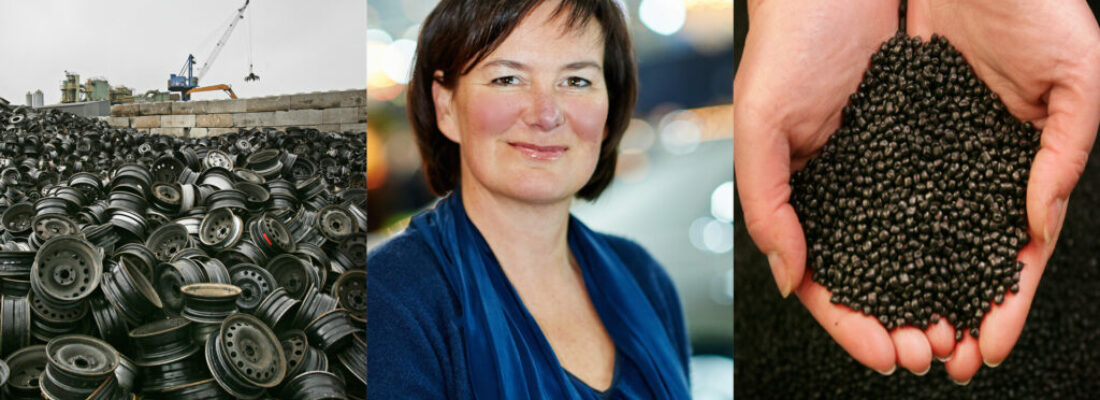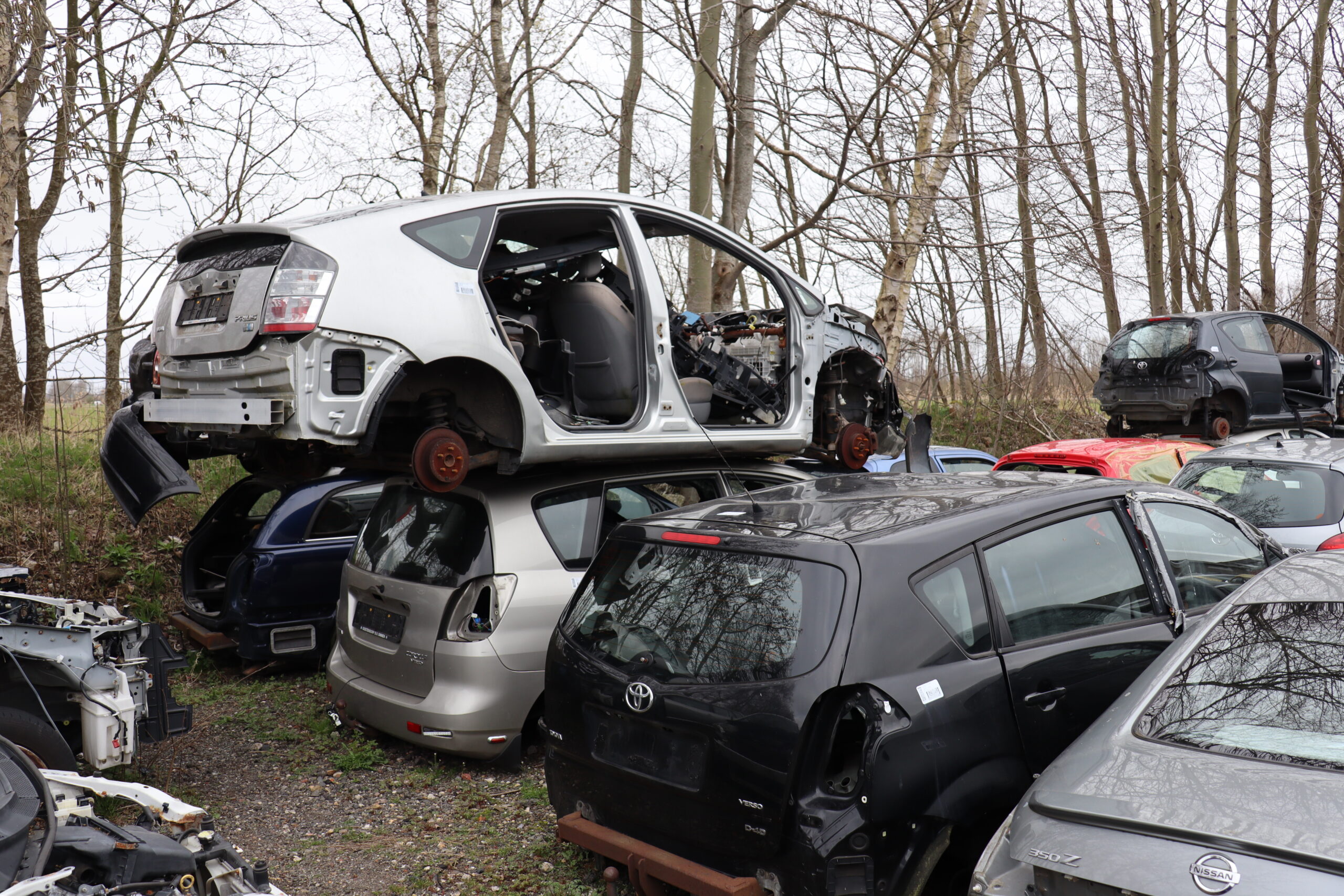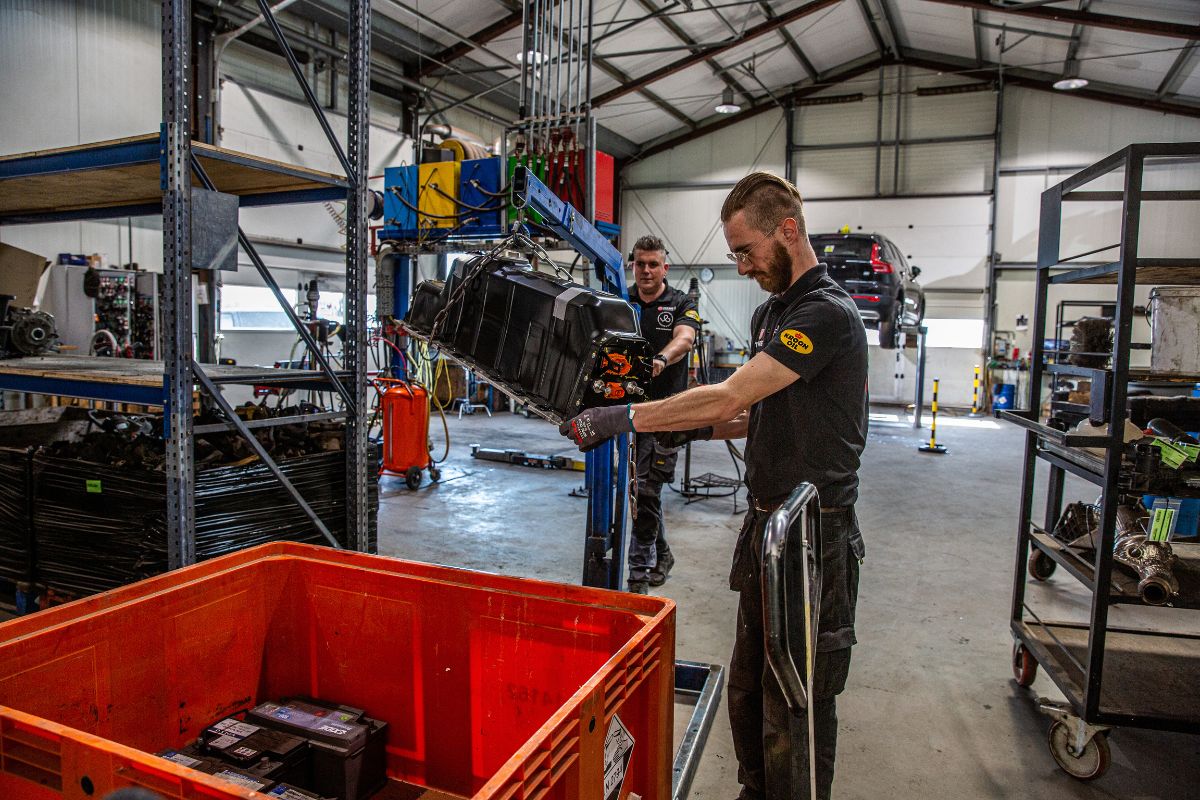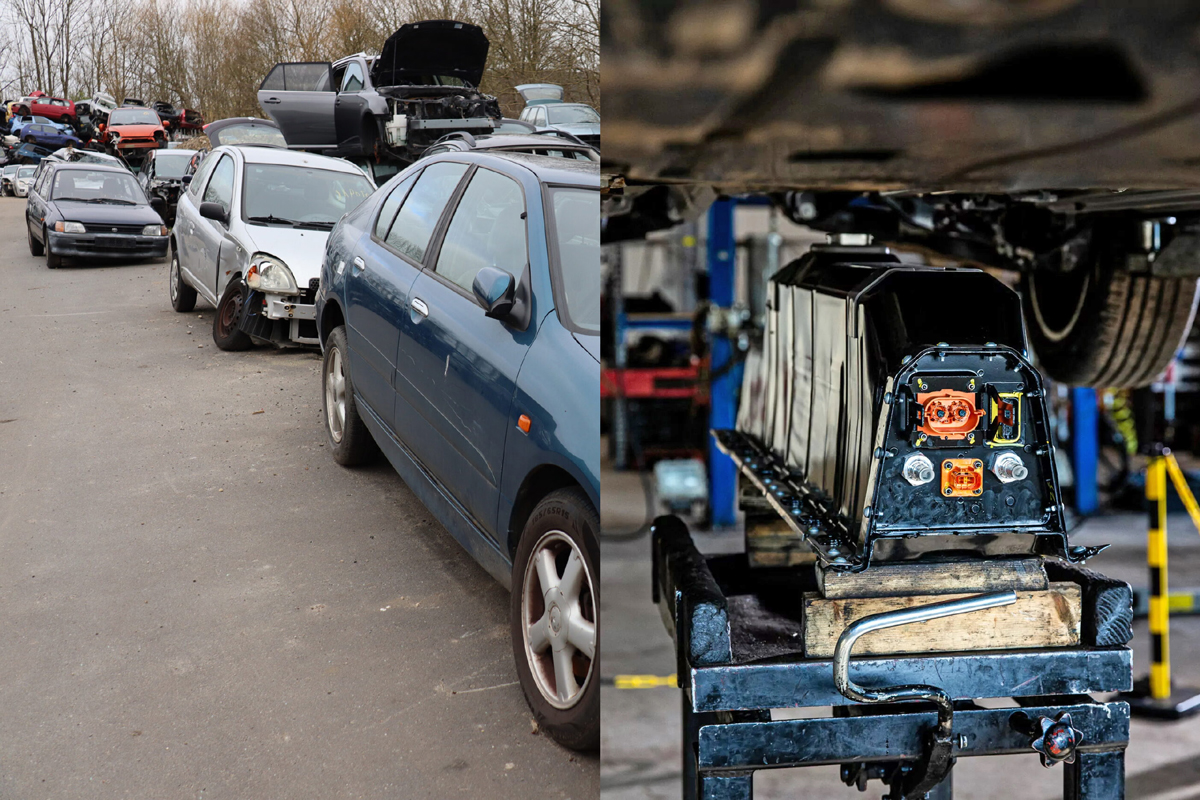In June, Febelauto, responsible for collecting, processing and recycling end-of-life vehicles in Belgium and Luxembourg, will have existed for 20 years. A perfect time to see what has been achieved in that time. Director Catherine Lenaerts looks at how her organisation is measuring up.
Tekst Jens Holierhoek
Fotografie Febelauto
#1 Recycling percentage – Lenaerts’ verdict: satisfied
“Just like the Netherlands, Belgium is a frontrunner. We have a very advanced recycling process because we even recycle the sand found in the mats. That we recycle 97.3 per cent of the car materials after depollution and disassembly is unparalleled. There are few other consumer goods that achieve such a high recycling standard. Take a look, a survey by McKinsey shows that about 40 per cent of a plastic bottle is recycled. In Belgium and the Netherlands we are at about 97 to 98 per cent with our cars [98.4 per cent in the Netherlands]. And cars are an incredibly complex product, requiring vast amounts of technology. There’s always room for improvement. In energetic valorisation (thermal processing possibilities, considering costs, energy production and emissions) we still have plenty of margin. We do then have to look at the economic feasibility. We have to make a comparative assessment. The final percentages are always the hardest”.
#2 Circularity – Lenaerts’ verdict: satisfied
“At the start, 20 years ago, we were a waste management company. Discarded vehicles were termed as waste and we recycled that waste. And look at us now, we are working on the transition to a circular organisation. We look for circular solutions for batteries and other car parts. We have already completed various circular projects; regarding air-conditioning fluids, glass and batteries. We have been looking at how to prevent car parts from ending up as waste straight away by seeing if they can have a second life first”.
#3 Collaboration – Lenaerts’ verdict: satisfied
“Febelauto was established in 1999 by various professional federations active in the motor sector. As a management organisation for discarded vehicles in Belgium, we are committed to collecting, processing and recycling end-of-life vehicles. I am extremely proud of the collaboration between the various partners in Belgium that has grown since the start; between the dismantling companies and the shredders. Our post-shredder technology was not marketed by Febelauto but by the shredders themselves. We are achieving great results”.
“In Belgium, you know which egg in your supermarket has been laid by which chicken, but you don’t know who is responsible for a car. That’s unbelievable”
#4 Encouragement – Lenaerts’ verdict: satisfied
“Febelauto tries to compare the different companies with their range of technologies. We measure and audit in an objective manner. We look at the separation efficiency up to the final step – the post-shredder technology – that therefore becomes a KPI [Key Performance Indicator]. The audits are an objective method for companies to see how well they are doing”.
#5 Handling discarded electric vehicles – Lenaerts’ verdict: on track, but room for improvement
“In Belgium we are somewhat behind the Netherlands when it comes to the proportion of electric vehicles in our corporate fleet. The government has not encouraged electrification as much. Here, the first batteries are now being freed up and we are going to look for a second-life solution before recycling them. We are currently working on a number of projects concerned with stationary energy storage. During our 20-year anniversary celebrations, we want to present a project where we construct an off-grid boat with second-life solar panels and second-life batteries. Another project is focused on emergency generators. We want to replace them with second-life batteries. With this we want to serve as an example to others”.
#6 Future proofing – Lenaerts’ verdict: on track, but room for improvement
“We are proud of these projects and will develop even more projects in the future. Consider carbon. We are now looking much further ahead. Hydrogen cars are on their way, carbon, how do we deal with them? Together with the companies, we are anticipating that. We are looking for solutions, preferably for reuse and otherwise at the best way to recycle them”.
#7 Sector viability – Lenaerts’ verdict: on track, but room for improvement
“It is important that the recycling industry can continue to make money. If we were confronted with impossible demands – for instance, if due to plastics we can no longer achieve the standard regarding the extremely alarming chemical decaBDE – and would have to disassemble all plastics, then there’s a risk that the activities that made you money suddenly cost you money. It’s a delicate balance. Then recycling would be a disaster. We have always worked hard to maintain the market mechanism, so that recycling continues to be a profitable business in the long term”.
#8 Ambitions – Lenaerts’ verdict: satisfied
“We are pleased that we collect more wrecks. There were about 142,000 this past year and that is an increase of eighteen per cent on the year before”.
“As a management organisation for discarded vehicles in Belgium, we are committed to collecting, processing and recycling end-of-life vehicles”
#9 Collection percentage – Lenaerts’ verdict: plenty of room for improvement
“In Belgium we don’t have vehicle traceability like in the Netherlands. In the Netherlands, the number plate follows the vehicle, but that’s not the case in Belgium. A licence plate is personal. When the car is no longer registered, the authorities no longer know who is responsible for it. There is no holdership obligation so you can do whatever you want with your car. Then it’s almost left to chance as to whether a customer comes to a centre and gets a certificate of destruction as proof they have disposed of the car correctly. This is the biggest problem in my opinion, that there is no completely closed registration system. This is the case in many European member states. If it wasn’t, we would be 20 years further ahead because we would have known where all those cars were. In Belgium, we estimate that, per year, between 35,000 to 65,000 wrecks are no longer traceable. The big question is where they all go. Perhaps to illegal companies, anything’s possible in Belgium, it’s not a problem. It would benefit the sector if we were able to recycle those tens of thousands of missing cars each year”.
#10 Legislation – Lenaerts’ verdict: plenty of room for improvement
“Belgian law at the Crossroads Bank for Enterprises states that every vehicle movement should be registered. If I sell my car to you, then that should be registered in the Crossroads Bank for Enterprises for vehicles. But that legislation was never implemented. The service that should administer this says: We are a service for vehicle registration, not a service for unregistering vehicles. We did a round of the political cabinets and hope that the new government will finally include this in the government decree. In Belgium, you know which egg in your supermarket has been laid by which chicken, but you don’t know who is responsible for a car. That’s unbelievable.”



